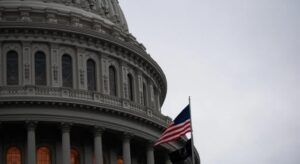Editor’s note: This op-ed was first published by MedPage on Dec. 4, 2021.
With the No Surprises Act set to take effect January 1, HHS is resisting a push from some doctor groups to weaken implementation rules of the legislation, and that’s a good thing. The law is a big win for patients, employers, and consumers.
Today, one in five emergency room visits and one in 10 elective surgeries at in-network facilities can result in a potential surprise out-of-network bill. Not only will the new law protect patients directly from surprise bills, it will also balance the scales in contract negotiations that have been tilted in favor of a subset of providers — primarily large private equity-backed physician staffing companies — who profit from surprise billing.
The Congressional Budget Office (CBO) estimates that the new law will reduce private insurance premiums by between 0.5% to 1%, reducing federal deficits by roughly $2 billion per year and saving consumers roughly twice that amount between lower premiums, cost-sharing, and no longer receiving surprise bills.
Sign up for Schaeffer Center news
Beginning in 2022, it will be illegal to bill patients for more than the in-network cost-sharing due under their insurance for out-of-network emergency care, air ambulance rides, or facility-based non-emergency services. If the out-of-network clinician or facility is unsatisfied with the initial payment, they can initiate an arbitration process with the insurer. Both parties then submit their final offer, and the arbitrator must select whichever they feel better represents an appropriate price, taking into consideration the health plan’s median in-network price for similar services, among other factors.
The doctor groups opposing the new law say it will give insurers the upper hand in setting payment rates, potentially driving some doctors out of networks or even out of business, thereby reducing access to healthcare.
What they fail to mention, however, is doctor groups are currently at a distinct advantage because for some services, such as emergency and certain facility-based care, patients do not have a meaningful choice of which doctor treats them. Patient volume in these specialties is not as dependent on contracts with health plans, creating a potentially lucrative alternative to contracting that is unavailable to other clinicians.
This alternative gives certain specialties additional leverage in negotiations with health plans, resulting in either higher prices if they join a network or continued high volume of out-of-network care where surprise bills for patients are possible. TeamHealth, a large private-equity backed staffing company, for instance, was clear in its communication to Congress that it views balance billing as a “contract leveraging tool.” Those higher prices for certain healthcare services mean higher premiums paid by workers, employers, individuals, and subsidized by taxpayers — as much as 5% higher by our estimates.
Most doctors, however, don’t want to balance bill unsuspecting patients, and the No Surprises Act leaves these doctors entirely out of its crosshairs. The elimination of an unfair business practice — surprise billing — is why the No Surprises Act is expected to reduce prices for some services. Any out-of-network payment mandate set through arbitration is purely inflationary.
By definition, then, the only facility-based clinicians that stand to lose from the new law are those who were benefitting financially from surprise billing, and the size of any such effect is directly related to the degree to which a clinician was benefitting. Nothing in the law constrains negotiations between facilities and these clinicians, which is the natural market negotiation for services such as anesthesiology where patient volume is determined by the patient’s choice of hospital or surgeon, rather than their choice of health plan. High prices generated by physician groups for other reasons aren’t affected, alleviating concerns about access to care.
And evidence from California, which similarly mandates minimum out-of-network payments tied to average in-network prices, shows a sharp move in-network from affected specialties after the 2017 law took effect. More importantly, from the patient’s perspective, the No Surprises Act means that 100% of emergency care providers and facility-based clinicians are effectively in-network.
Indeed, physician groups not currently profiting from surprise billing and getting paid less than median prices by health plans could see pay increases because of the law’s new out-of-network price support. That support takes the form of a minimum out-of-network payment requirement. The No Surprises Act uses median in-network prices to guide what health plans and employers should be required to pay for out-of-network emergency and facility-based services. While evidence suggests that in-network prices for these services were inflated by the leverage tied to surprise billing, the law relies on median prices to take advantage of the fact that surprise billing was primarily driven by a minority of groups in these specialties. Medians, by their nature, are less sensitive to outliers, such as the high prices paid to the minority of provider groups who aggressively leveraged surprise billing. Thus, the scales should now be more balanced, although still modestly tilted in favor of those doctors who were previously paid below the median.
The Biden administration’s rulemaking instructs arbitrators to begin with the presumption that this plan-specific median in-network price is the appropriate out-of-network price. Arbitration decisions should generally fall within a few percent of this amount, in line with the core assumption underlying CBO’s estimates of consumer and taxpayer savings. However, the rule allows for further deviation if credible evidence is presented to justify a higher or lower payment, whether based on the quality of the provider, the complexity of the service, or some other factor.
Abandoning this framework could prove costly, inflating prices and increasing reliance on the arbitration process and the associated administrative costs. And delaying the law is not the answer. That certainly appeared to be the thinking of HHS Secretary Xavier Becerra, who defended the No Surprises Act rules in a recent interview with Kaiser Health News. Doctors and hospitals who took advantage of a market failure and charged exorbitant rates will have to bear their share of the cost, he said. “It’s not fair to say that we have to let someone gouge us to be in business.”
This analysis is part of the USC-Brookings Schaeffer Initiative for Health Policy, which is a partnership between Economic Studies at Brookings and the University of Southern California Schaeffer Center for Health Policy & Economics. The Initiative aims to inform the national health care debate with rigorous, evidence-based analysis leading to practical recommendations using the collaborative strengths of USC and Brookings.



